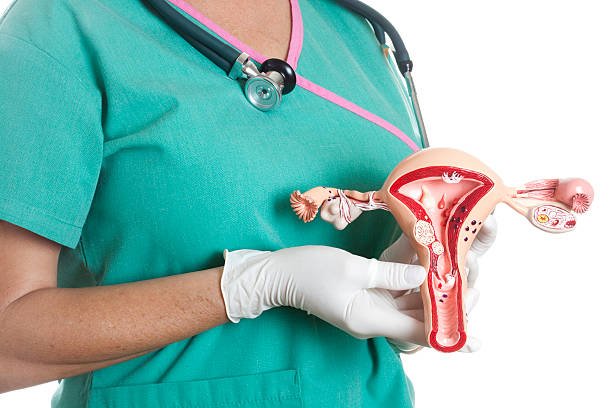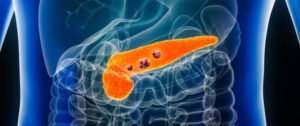
The Earlier the Cervical Cancer Vaccine is Administered, the More Effective it Will be! Learn About HPV Vaccination Instructions
Cervical cancer is a killer of women’s health. According to statistics from the National Health Service, cervical cancer ranks eighth among the top ten causes of cancer death among women. More than 70% of cervical cancers are caused by HPV types 16 and 18. The full name of HPV is Human papillomavirus, which is human papillomavirus. Among them, types 16 and 18 are the most common high-risk human papillomaviruses, which are related to the occurrence of cervical precancerous lesions, cervical cancer and male and female external genital cancers related.
In order to help women prevent cervical cancer, in recent years the government and various county have subsidized junior high school girls to receive the HPV vaccine for free. The following will further introduce the HPV vaccination instructions and side effects.
HPV vaccine, cervical cancer vaccine
There are more than 100 common types of HPV, and there are about 17 high-risk types related to cervical cancer. HPV may also cause genital warts (commonly known as cauliflower). About 80 to 90% of HPV infections will be cured within 1 year. 10 to 15% of women continue to be infected for more than 1 year, and 1% of them will develop the disease, cause cervical precancerous lesions, and even develop into cancer.
3 important things to know about cervical cancer vaccine
- Recommended ages for HPV vaccination
All people between the ages of 9 and 45 can receive the HPV vaccine to prevent cauliflower and cancer caused by HPV.
HPV can be spread through skin-to-skin contact, and its traces can be found on fingers, palms, mouth, and genitals. In other words, any form of sexual behavior (including touching) can transmit HPV. Almost any vaccine is most effective when administered before contracting the disease, and the HPV vaccine is certainly no exception. Therefore, the HPV vaccine is most suitable for adolescent girls to be administered before they have sexual intercourse.
Regardless of your age, it is recommended that you consult a healthcare professional before getting the HPV vaccine. - You can still get vaccinated if you have had sexual intercourse or have been infected with HPV
Even if you have been infected with a certain type of HPV virus, the HPV vaccine can still protect you from infection by other types of HPV. Therefore, people who have had sexual experience can also be protected by the HPV vaccine. It’s important to note that no vaccine can treat an existing HPV infection; the vaccine can only protect you from being infected by an HPV virus you have not been exposed to. - Even those who have received the HPV vaccine should have regular smear tests
The HPV vaccine can reduce the risk of cervical cancer by 60% to 70%, but it cannot prevent it 100% because the vaccine can only prevent some HPV virus infections. Therefore, regular Pap smears are still necessary. It is recommended that women start at the age of 21 and have regular Pap smears. Get a Pap smear to prevent cervical cancer, and also practice safe sex.

Cervical cancer vaccine side effects and concerns
- The vaccine needle injection site will be red, swollen, and painful
- Fever
- Dizziness
- Fainting (compared to other age groups, teenagers are more likely to faint after vaccination)
- Nausea
- Headache
- Burnout
- Muscle and joint pain
Concerns about the HPV vaccine
The government’s HPV vaccine policy has good intentions, but there are still many doubts about the HPV vaccine since its introduction in 2006, including some Serious Adverse Events (SAE). The so-called SAE is defined as the following 6 severity levels from high to low after drug use:
- Die
- Life threatening
- Causing permanent disability
- Congenital malformation
- Causing a patient to be hospitalized or prolonging a patient’s hospital stay
- Others who may cause permanent harm and require treatment
This controversy continues to spread around the world. In Japan, which we are familiar with, a small number of female students developed SAE such as body pain, soreness and numbness, and difficulty walking after being vaccinated in early 2013. Some cases are so serious that they require the use of respirators, walkers, and wheelchairs to live. In the UK, there are even cases of urinary incontinence due to epilepsy caused by the HPV vaccine and the need to wear diapers. As a result, Japan’s Ministry of Health, Labor and Welfare (similar to my country’s National Health Service), a public institution, announced its decision to withdraw its recommendation for women to use the HPV vaccine.
There are cases of adverse reactions after vaccination with the HPV vaccine. The media and the public call this group of young women with adverse reactions. The joint pain of these female students is so painful that they cannot walk. “The joints are even more accurate than the weather bureau.” Some of them received major injury cards at such a young age because of this.
However, the medical community so far agrees that compared with the health damage caused by cervical cancer, the chance of adverse reactions from vaccination is still low.
Please discuss with your doctor whether to vaccinate against cervical cancer or not
Some researchers believe that the government should not stop HPV vaccine injections before complete scientific verification is available. This will have an impact on public health and will not promote people’s health and well-being. Although the percentage of serious adverse drug events caused by the HPV vaccine is indeed in the minority. The number of people who have side effects of the vaccine cannot be counted. Many people may also No connection between the illness and the vaccine was perceived.
Although the HPV vaccine can reduce the risk of cervical cancer in the future, no one can say what the reaction will be after the vaccine is administered. It is recommended that regardless of whether you have a family history, it is best to discuss it with a professional doctor before making a decision.
According to NHS, The side effects of the HPV vaccination are usually quite mild. Soreness, redness or swelling in the arm where the injection was given is common, but this should wear off in a couple of days. Some people may feel sick or have a headache, fever, tiredness or aching muscles.












